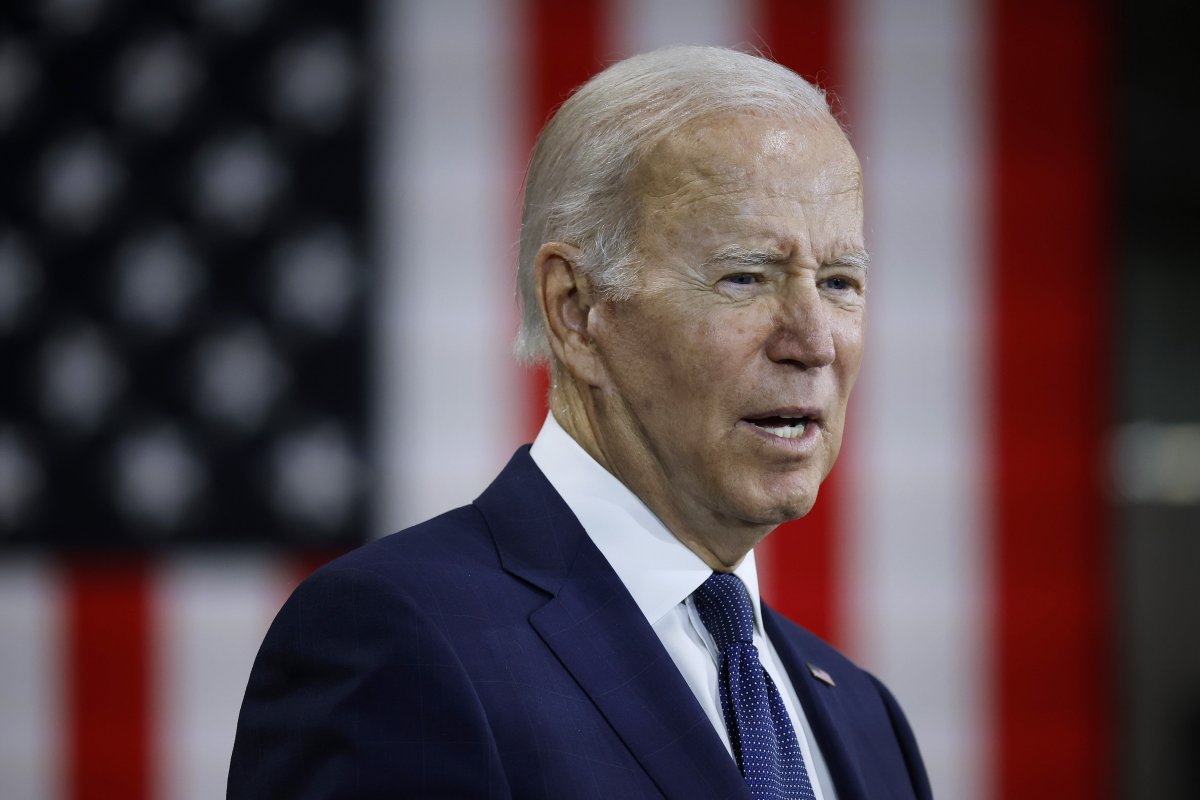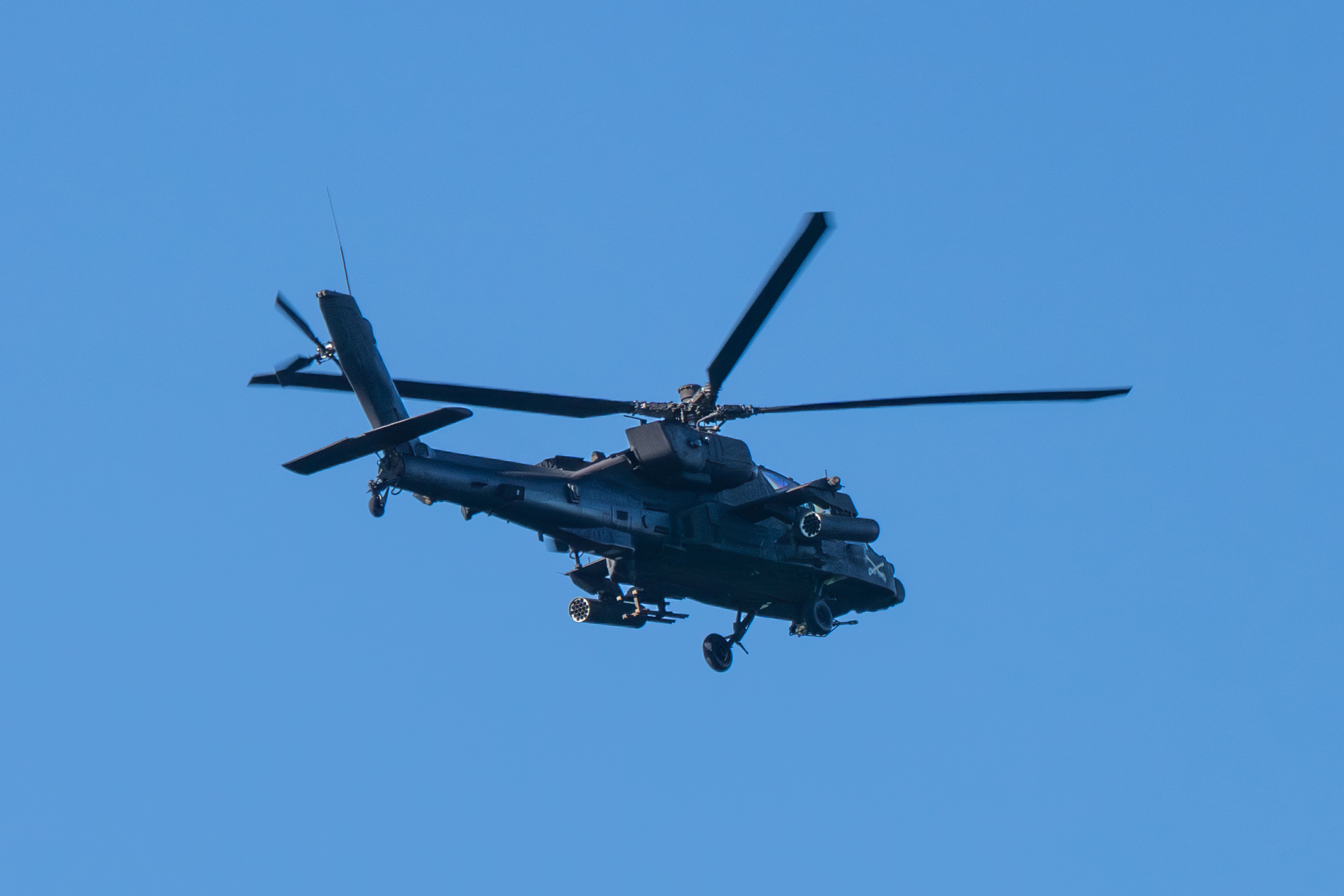The revelation that Iranian-made drones are being used to strike targets in Ukraine by Russia could have an impact on U.S. President Joe Biden's revised nuclear deal with Iran, experts have told Newsweek.
Russia deployed Iranian-made weapons to strike several cities in Ukraine, including the capital city, Kyiv, early on Monday, targeting critical infrastructure and civilians, Ukrainian President Volodymyr Zelensky said in a video address after the attacks.

The strikes appeared to be an apparent response to the bombing of the critical Kerch Bridge that connects the Russian-occupied Crimean Peninsula to mainland Russia. Ukraine hasn't officially claimed responsibility, but its officials celebrated on social media.
Back in 2015, the Joint Comprehensive Plan of Action (JCPOA) was agreed between Iran and global powers, including Germany, the U.K. and the U.S., for the Western Asian country to limit its uranium-enrichment capabilities for its nuclear programme in exchange for the lifting of sanctions.
However, the U.S. withdrew from the deal in May 2018 under President Donald Trump, and Iran grew its uranium-enrichment capabilities, so sanctions to Iran were reapplied.
Parties to the original JCPOA are looking to revive the deal, and Biden has said that Iran does not achieve nuclear-weapons capability.
Since Russia first invaded Ukraine in late February, Tehran has quietly sided with Moscow, despite calling for peace publicly. Multiple reports emerged back in August that Iran sold and shipped its drones to Moscow.
"I think Iran's drone proliferation to Russia for use in Ukraine makes it much harder for the Biden administration and Europe to sell a return to the JCPOA," Jason Brodsky, policy director of United Against Nuclear Iran, told Newsweek.
"First, it's yet another sign that the U.S. and E3 are trying to recreate a geopolitical reality with Iran that just does not exist anymore. 2022 is not 2015. The policy is trapped in a dangerous time warp."
Brodsky said that the expiration of the U.N. arms embargo on Iran in October 2020 as a part of U.N. Security Council Resolution 2231, which endorsed the JCPOA, gave Tehran "legal cover" to send lethal drones to Russia.
"A return to the JCPOA would effectively bless its expiration, and that's dangerous," Brodsky said.
A revived JCPOA risks resourcing Russia amid its war in Ukraine, as Moscow will view Iran as a sanctions-evasion hub, Brodsky said.
He pointed out that Russia is using Iranian-made drones against an EU-candidate country. So far, the bloc and the U.K. have not held Iran accountable for this proliferation. Only the U.S. has levied sanctions, "which may be traced to their broader paralysis in Iran policy because of a desire to revive the JCPOA," the analyst said.
The more the war goes on and if Iran becomes more involved, the more unsustainable the position becomes.
Tehran is "testing international red lines," and no response from Europe only emboldens Iranian decisionmakers, Brodsky said.
"In the end, the U.S., EU and U.K. will be left with an uncomfortable contradiction in their JCPOA policy, which risks resourcing Tehran's defense industry and, in turn, its drone proliferation to Russia via sanctions relief, while at the same time defending an EU candidate country from an invasion," Brodsky said.
"European companies choosing to do business with Tehran if the JCPOA is revived may unwittingly be resourcing this pipeline, which is deeply problematic."
National security expert Dr Rebecca Grant told Newsweek it was a poor decision that the Biden administration was "ignoring" Iran's drone sale to Russia.
"Russia is using the drones to coordinate indiscriminate attacks that can kill civilians in Ukraine. The Iran deal was sinking anyway, due to Iran's banned activities and refusal to get back in compliance," she said.
"I don't understand how the U.S. and European partners in the deal can support Ukraine, then talk amiably with Iran. The White House made sure to reveal intelligence on the Iran drone sale, but apparently won't hold it against Iran."
Grant added that Iran's drones won't save Russia's military operations. "The U.S. is pretty familiar with Iran's drones as seen in action in Syria, and a U.S. F-15E fighter just shot down a Mohajer-6 Iranian drone headed toward U.S. forces near Irbil, in Iraq, on September 28."
In Iran, the authorities' brutal crackdown of protests over the death of Mahsa Amini on September 16 has also left the Iranian parties to the nuclear deal in a vulnerable position. Both the U.S. and the U.K. have sanctioned Iran's morality police, whom they accused of brutalizing Amini in custody leading to her death. She was arrested for allegedly wearing "unsuitable attire."
Brodsky said the protests have amplified the political costs of reviving the JCPOA. "The U.S. and its allies will argue that they are able to revive the JCPOA while holding Iran's system accountable for its human-rights violations.
"But the West's designations for human-rights abuses do not influence Iranian decision-making nearly to the degree that the sanctions which are scheduled to be lifted under the JCPOA do."
"That inconvenient truth makes it difficult for capitals to argue that they support the Iranian people while enriching their oppressors. Hence it increases the political cost in reviving the accord as the Iranian people are telegraphing to the world: the system is unreformable, JCPOA or no JCPOA," Brodsky added.
"While the protests are heart-rending, the main obstacle in the deal is that Iran expects sanctions relief," Grant said. "The Iran regime also believes pursuing a nuclear weapon stokes their anti-USA position, and the rhetoric helps keep them in power. Iran really does not want a deal right now."
Uncommon Knowledge
Newsweek is committed to challenging conventional wisdom and finding connections in the search for common ground.
Newsweek is committed to challenging conventional wisdom and finding connections in the search for common ground.
About the writer
Jack Dutton is a Newsweek Reporter based in Cape Town, South Africa. His focus is reporting on global politics and ... Read more
To read how Newsweek uses AI as a newsroom tool, Click here.






